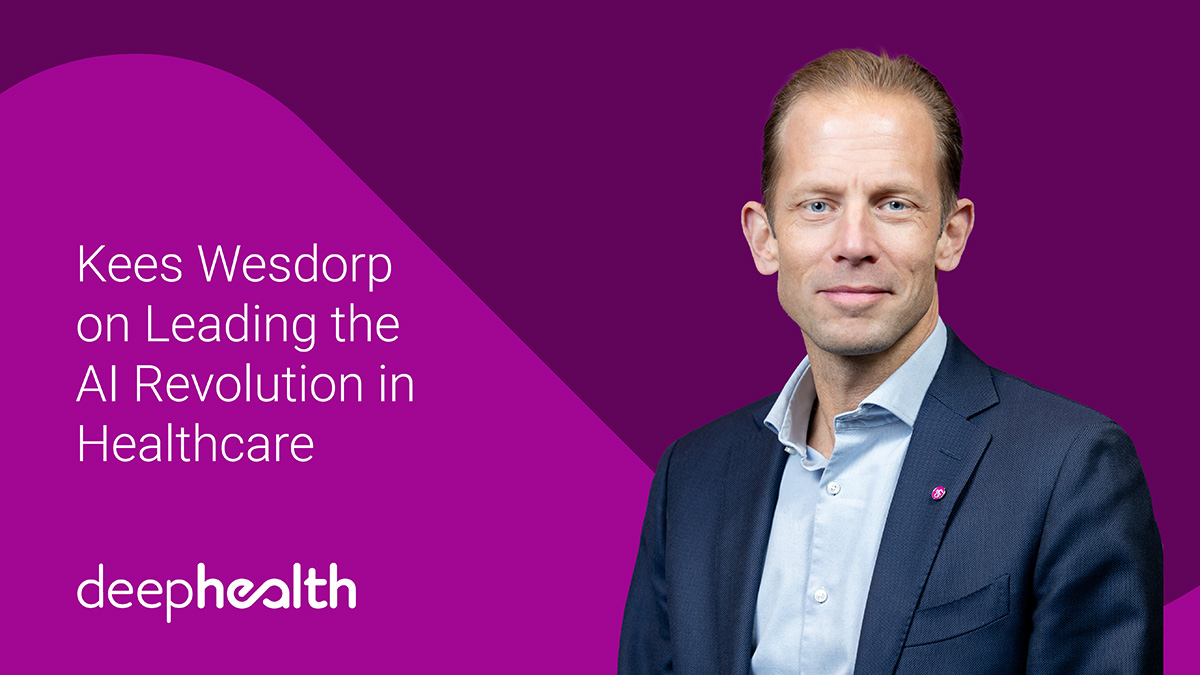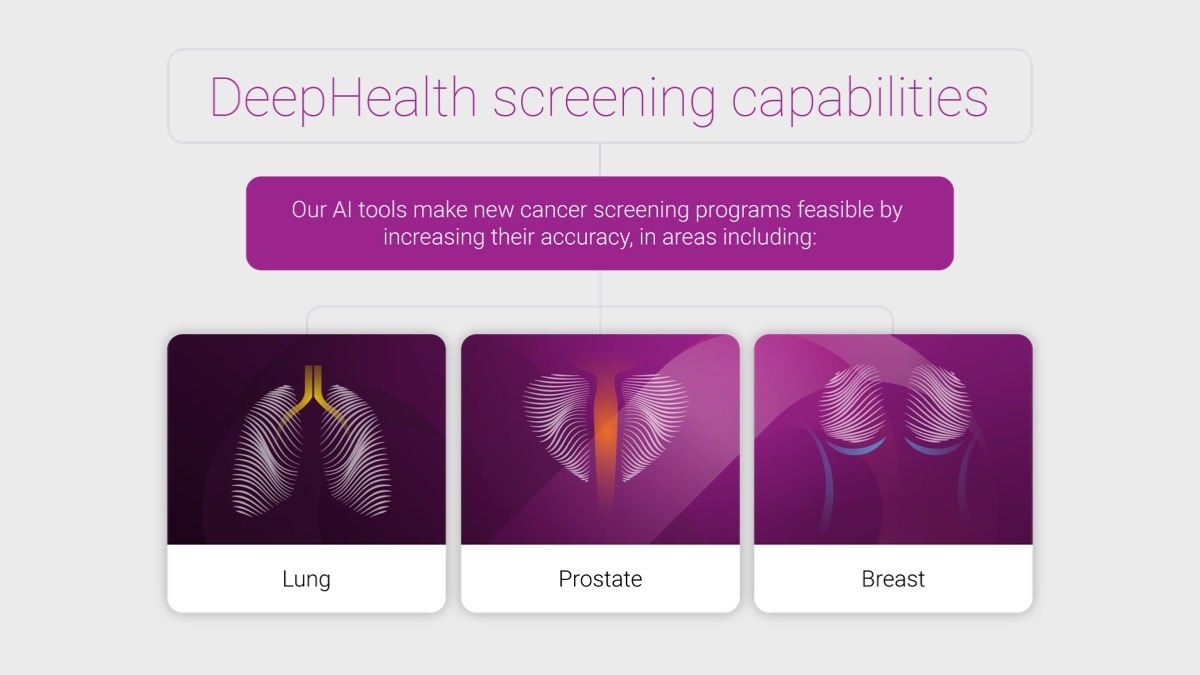Original article published December 20, 2024, in the Future of Health special edition insert with Financieel Dagblad.
In an era where technology is reshaping healthcare, DeepHealth stands at the forefront. Kees Wesdorp, President and CEO of DeepHealth, shares his insights on the pivotal role of artificial intelligence (AI) and advanced informatics in revolutionizing imaging-based care for real-world impact.
What is DeepHealth all about?
We are a global leader in AI-powered health informatics, empowering breakthroughs in care through imaging. Today, over 800 clinical sites and more than 3,000 radiologists around the world are using DeepHealth solutions to improve care delivery. As a wholly owned subsidiary of RadNet, a leading provider of diagnostic imaging in the US, DeepHealth can rapidly iterate and validate innovations in clinical practice. This enables fast prototyping and feedback at-scale, as well as access to data and insights on high-volume radiology operations. Our AI-powered innovations build on the capabilities of the companies we’ve integrated, including two from the Netherlands – Aidence lung AI and Quantib prostate and brain AI – and are designed to improve clinical confidence, operational efficiency and delivery of care in breast, lung, prostate, and brain health. Every year, our solutions help process over 20 million imaging exams, with more than 1.3 million of those leveraging our clinical AI to enhance diagnoses.
How is DeepHealth making a difference in care delivery?
Traditional radiology workflows are often fragmented, with disconnected systems, applications, and data streams leading to inefficiencies and lost time. What I hear from radiologists and care teams is that too much of their time is spent on non-clinical tasks, with the right data not always available at the right time. What if, instead of addressing these challenges with isolated point solutions, we took a more integrated approach? That’s exactly what we do at DeepHealth. We use AI to support every step of the workflow – from patient scheduling and image acquisition to diagnosis, reporting, clinical collaboration, and follow-up.
At the center of this is DeepHealth OS, our cloud-native operating system that seamlessly integrates clinical and operational data and workflows. DeepHealth OS provides personalized, AI-powered workspaces that give radiologists, technologists, and care teams immediate access to the information they need. By automating tasks, we enhance efficiency and refocus attention on patient care. A concrete example is self-scheduling. In the U.S., a large healthcare provider saw a 7% decrease in incoming calls because 20% of patients were able to book their own appointments. This not only reduces administrative staff workload but also improves the patient experience.
How is DeepHealth transforming cancer detection?
At DeepHealth, we are passionate about the meaningful role we can play in cancer detection. In breast cancer screening, our AI-powered breast solution enhances a radiologist’s interpretation capabilities by quickly highlighting suspicious lesions and has been shown to increase detection rates by an impressive 21%.1 In prostate cancer detection, our AI-powered prostate solution2 has been shown to enable a 97% diagnostic sensitivity, up from 92% for radiologists without AI support.3 The performance boost is particularly valuable for less experienced radiologists, enabling them to achieve accuracy levels comparable to seasoned experts.4 This ensures more patients have access to high-quality diagnostics, regardless of their radiologist’s experience.
How does AI make large-scale cancer screening programs more possible?
Our technology is already enabling major cancer screening programs at over 350 clinical sites, helping manage the workload of large population health initiatives. In the U.S., DeepHealth’s AI technology powers the Enhanced Breast Cancer Detection program at RadNet, processing more than 1 million mammograms annually. In the UK, DeepHealth’s AI-powered lung solution5 is used in the NHS England’s Targeted Lung Health Check program, one of the world’s largest lung cancer screening initiatives. Within this program, 76% of detected cancers were caught at earlier, more treatable stages, compared to only 29% historically (without AI).6 These programs demonstrate how AI not only reduces the workload for radiologists but also ensures faster and more accurate diagnoses.
What does the future look like for AI-powered imaging?
DeepHealth sees AI as a key enabler of an improved care experience. By leveraging AI, radiologists and other care providers can treat more patients with greater accuracy and in less time. AI streamlines and optimizes workflows, allowing radiologists to focus on complex cases and patients, while routine tasks are managed by AI.
This isn’t just about improving daily operations. It’s about saving lives through earlier and more precise diagnoses and improving the overall patient experience. As healthcare demand continues to grow and resources remain limited, DeepHealth’s technology offers promising solutions for the future of imaging-based care.
1) SmartMammo Dx + Assure used in a safeguard review process improved cancer detection rate by 21% in a study of over 575,000 patients, showing the same benefits across racial subgroups and patients with different breast densities. Data on file.
2) DeepHealth’s prostate solution is manufactured as Quantib® Prostate for DeepHealth by Quantib B.V.
3) Günzel et al., 2024.
4) Faiella et al., 2022.
5) Deephealth’s lung solution (Veye Lung Nodules in Europe) is manufactured for DeepHealth by Aidence B.V.
6) UK Department of Health and Social Care. New lung cancer screening roll out to detect cancer sooner, 2023.






